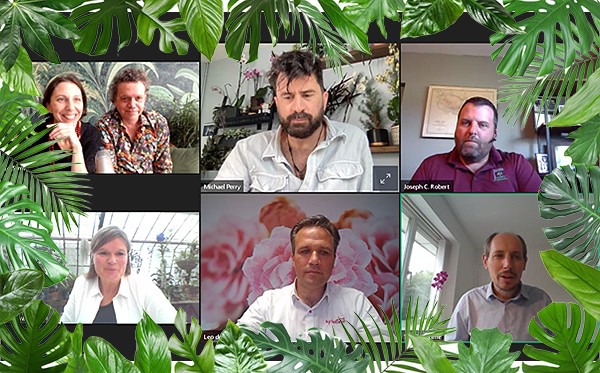In a recent webinar (June 30), ornamental growers, traders, retailers, and suppliers from around the world discussed how the industry can capitalise on the recent global houseplant popularity trend.

It sounds like a good problem to have. Demand for all kinds of plants – but particularly houseplants – was already rising worldwide before the coronavirus pandemic, with its lockdowns and stay-at-home policies, sent it outstripping supply by a wide margin. Now the industry needs to ensure it holds on to these customers and continues to meet their needs.
“Our industry saw a 25% increase in the first quarter this year compared to last; our own business saw a 60% increase,” Joseph Roberts, CEO of USA-based young plant supplier ForemostCo, told the audience. “We need to think [now] not only about how we keep those new consumers but how we catch up with that demand. It takes time and investment to scale up.”
Younger people have been driving the trend, and while sales have risen across all plant categories, foliage houseplants have seen the most significant growth.
Alice van Veen, commercial manager of retail plant supplier Royal Lemkes based in the Netherlands, echoed this position. “We had to scale-up supply of that category in a short space of time, after a period from 2007 to 2017 when there was little interest, which meant growers had been unable to invest. For Europe, market share of imported indoor green varieties have fallen in these years from around 70% to 40% due to local market growth in Asia and North America and the increase of European lab tissue culture, cuttings, and seeds varieties.” She added: “It could be 2023 or 2024 before supply again balances with demand.”
Leo de Vries, director of the plant breeder, propagator, and grower KP Holland, said the current higher level of demand was likely to continue. “It’s a good time to invest in extra facilities,” he said. “We have to make sure we can deliver both in quantity and quality.”
At the same time, Roberts feels it is appropriate for the industry to look at pricing. “There are always economies of scale associated with expanding production, but we also have to beware of rushing in to try to double sales, for example,” he said. “There is a risk of over-producing and commodifying some lines.
“Now is the time to look at raising prices, to recognise the demand. But it must be done in a sustainable way, remaining competitive.”
If drawing level with demand is the short-term challenge, keeping all these new customers is the longer-term one.
“A lot could fall away again when they start going back to work and spending less time at home,” said Michael Perry, who runs the UK-based Mr Plant Geek social media site. “It’s a golden moment here and we need to keep customers enthused with advice and by showing them new plants to try, what’s achievable and to help them avoid failures.”
De Vries believes capitalising on the current boom in plant sales calls for a more collective effort on marketing and promotion. “A better understanding of the consumer will help decision-making by everyone, from breeders onwards,” he said. “That in turn means better supply chain co-operation, for example, sharing data about what is and isn’t selling.”
Improved supply chain communications and data sharing will also help strengthen sustainability and cut product waste and use of plastics, substrates, chemicals, and energy, said Van Veen.
She suggests sustainability of a product will become part of consumers’ perceptions of quality. “People perceive plants as ‘green’, but we have some inconvenient truths. Making the supply chain more transparent can help us address them.”
The industry could also make better use of social media to communicate with its consumers by teaming up with ‘influencers’ like the Plant Geek, believes De Vries. “The cycle for breeding new plants is longer than the cycle of short-term trends on Instagram,” he said. “We need to play a greater role in influencing trends.”
Hosted by JungleTalks, a recording of this event that illuminates in abundance the opportunities and challenges for ornamental growers can be viewed online.
The webinar was organized by FloraCulture International (FCI) magazine and supported by the International Association of Horticultural Producers (AIPH). FCI is grateful to this webinar’s sponsor ForemostCo.











